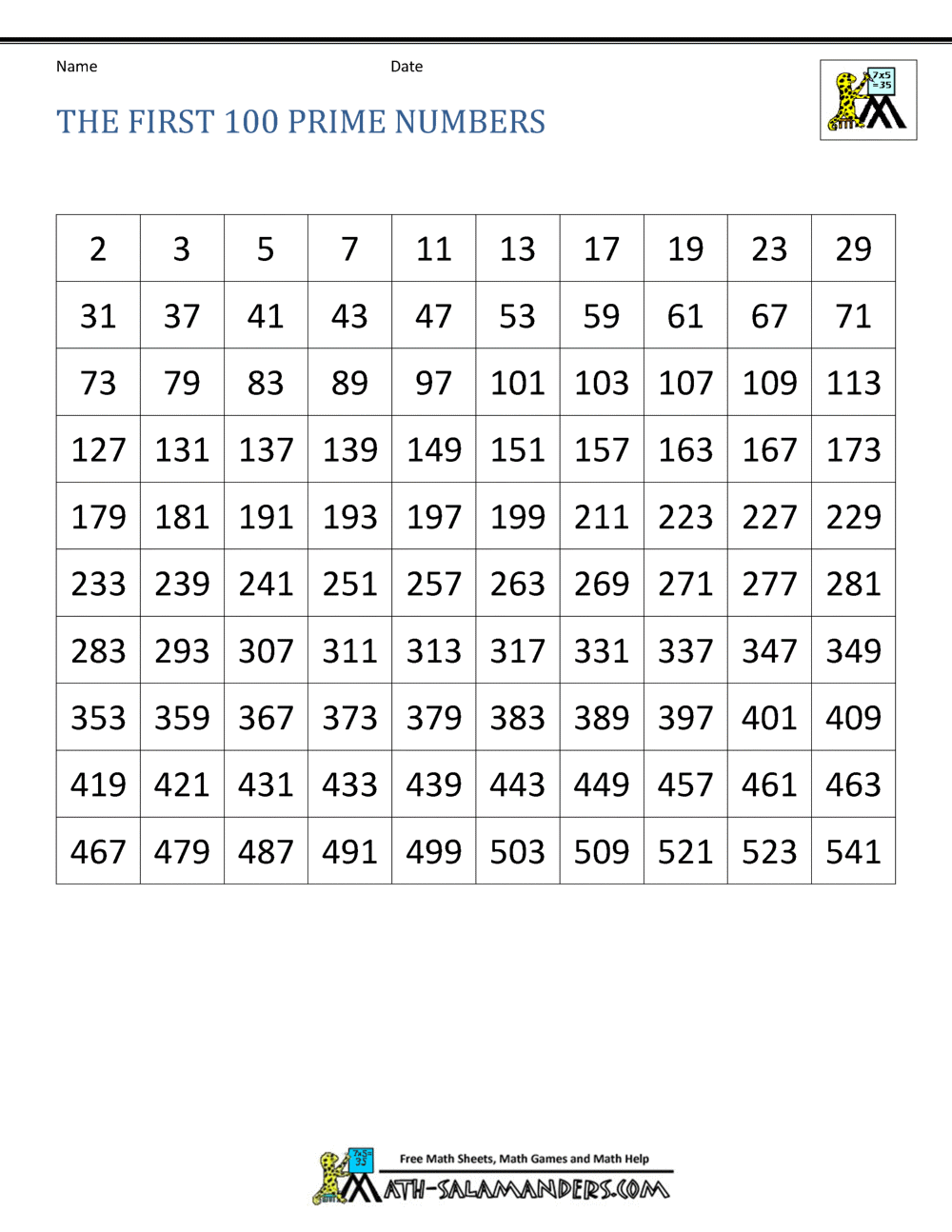

The calculator also indicates the nth prime for the first 1000 prime numbers. Prime Factors Calculator to verify that a number is prime. Hover your mouse over any number in the table to see the n th label as The prime number at the intersection of row 220 and column heading 3 is Prime = 1409. All prime numbers are odd numbers except 2, 2 is the smallest prime number and is the only even prime number. Also, we can say that except for 1, the remaining numbers are classified as prime and composite numbers. Always remember that 1 is neither prime nor composite. To find a prime number, say Prime, find row heading 220 and column heading 3 for 220+3=223. Some of the prime numbers include 2, 3, 5, 7, 11, 13, etc. You can also denote the nth prime number with brackets as Prime, so: The n th prime number can be denoted as p n, so: There are 1,009 total prime numbers in the lookup table below. The fundamental theorem of arithmetic says that any number can be expressed by a unique product of prime numbers.The prime numbers table lists the first 1000 prime numbers from 2 to 8011. Here is a interesting sequence of prime numbers in which all of the digits have circles in them:.Dividing a prime number by another natural number results in numbers. A prime number cannot be divided by any other positive integers without leaving a remainder, decimal or fraction. It also looks like the word Google if you type it into a calculator and look at it upside down! A prime number is a whole number greater than 1 with only two factors themselves and 1. The Greek mathematician Euclid studied prime numbers in 300BC.The largest prime number known has around 13 million digits!.The number 1 used to be considered a prime number, but it generally isn't anymore.Prime numbers are often used in cryptography or security for technology and the internet. List of prime numbers All prime numbers from 1 to 100 All prime numbers from 101 to 1000 All prime numbers from 1001 to 2000 All prime numbers from 2001 to.There are an infinite number of prime numbers.All even numbers greater than 2 are not prime numbers.The number 1 is not considered a prime number.

(hint: we promise the answer is "no" and they are, therefore, prime numbers). Take a look at a few of them and see if you can figure out any other number that they can be divided by other than the number itself or the number 1. Ah, but it can be divided by 5, so it is not a prime number. The number 4 is not a prime number because it can be divided evenly by 4, 2, and 1. The number 5 is a prime number because it cannot be divided evenly by any other numbers except for 5 and 1. Okay, maybe that's a bit hard to understand. A prime number is a whole number with exactly two factors, itself and 1.


 0 kommentar(er)
0 kommentar(er)
